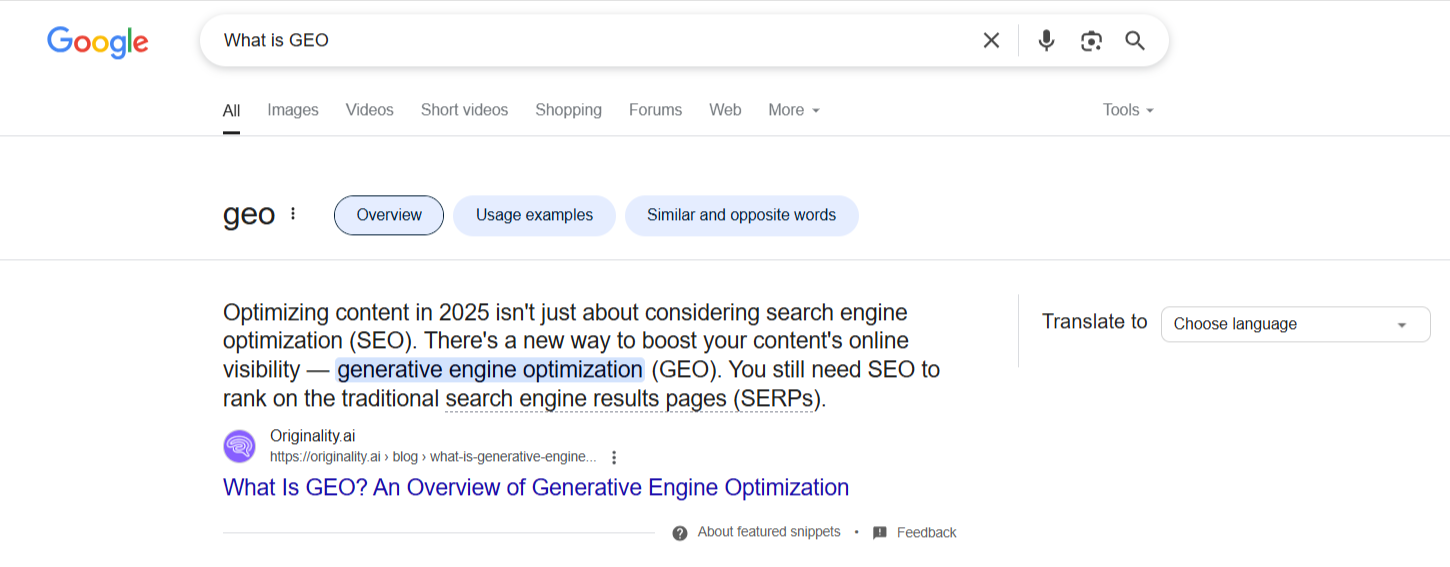
Index
- Write Like You’re Answering a Real Person’s Question
- Cover the Whole Topic (Not Just Keywords)
- Use Clear Structure: Headers, Lists, and Snippets
- Answer Questions Early
- Use Schema Markup & FAQ Blocks
- Link to Trustworthy Sources—and Yourself
- Stay Consistent & Keep Updating Your Content
- Be Useful, Not Just Optimized
Have you ever wondered how ChatGPT and other AI tools determine which content to draw from when providing answers? You’re not alone.
With more people using tools like ChatGPT, Gemini, Perplexity, and even voice assistants to search for answers, the rules of SEO are shifting. It’s no longer just about ranking on Google. It’s about becoming “AI answer-worthy.”
If you’re a content creator, marketer, or business owner, this is your next big opportunity—or your next big blind spot.
So, how do you make sure your content is the one AI chooses?
Let’s break it down.

Write Like You’re Answering a Real Person’s Question
Generative AI is trained to mimic human-like answers to real-world queries. So, your content needs to sound like it’s written for humans, not algorithms.
Instead of writing:
“CRM solutions improve productivity by 78%.”
Try: “If you’re juggling spreadsheets to manage your customers, a CRM tool could save you time and seriously boost productivity.”
Use conversational language. Break things down simply. Pretend someone is asking you that question over coffee, and you’re giving them your best advice.
Cover the Whole Topic (Not Just Keywords)
AI looks for comprehensive, context-rich content, not keyword stuffing.
Instead of targeting one keyword 50 times, aim to explain the whole subject with supporting points, FAQs, examples, and even counter-arguments. This helps the AI “see” your page as a complete, authoritative source.
Pro Tip: Use tools like “People Also Ask” on Google or AnswerThePublic to identify related subtopics you can address in your post.
Use Clear Structure: Headers, Lists, and Snippets
AI loves structure.
Use proper headers (H2s, H3s) to break down your content.
Add bullet points, numbered lists, and short summaries at the end of your sections.
Think like this:
- AI skims for structure
- Readers scan for takeaways
- You win with clarity
A well-formatted post is more likely to be parsed correctly and served up as a snippet or summarized response.
Answer Questions Early
Don’t bury the answer 600 words in. AI tools want quick, clear answers—often in the first 100–200 words.
Start your article or section with a direct response, then elaborate later. For example:
Q: How can small businesses appear in AI search results?
A: By creating detailed, trustworthy content that answers specific questions clearly and concisely.
Boom. Now the AI has what it needs. The rest of your article can dive deeper.
Use Schema Markup & FAQ Blocks
Want to help AI “read” your site better?
Schema markup is behind-the-scenes code that tells AI what your content is about. You can use things like:
- FAQ Schema
- How-To Schema
- Article Schema
Also, adding FAQ sections to your blogs (using collapsible blocks or a simple Q&A format) helps your chances of being picked up for direct answers or AI-generated summaries.
Link to Trustworthy Sources—and Yourself
AI models are trained to spot authority and credibility. That means linking to trusted sources (think: .gov, .edu, reputable media) and building your internal link structure.
Don’t just write standalone pages. Create content clusters around topics, link between them, and show depth in your area of expertise.
Over time, this positions you as a go-to resource—not just to your readers, but to the bots, too.
Stay Consistent & Keep Updating Your Content
AI values freshness.
Regularly updated content signals that your site is active and up to date. If you wrote a killer blog in 2021, give it a refresh. Update the stats, add new tips, and keep it relevant.
Also, consistent publishing builds topical authority—one of the biggest factors in how GenAI systems evaluate sources.
Be Useful, Not Just Optimized
Here’s the bottom line:
GenAI tools are trained to prioritize helpful, user-first content. The more useful and clear your content is, the better your odds of becoming a go-to answer source.
So instead of just chasing algorithms, ask yourself:
“Would I find this genuinely helpful if I were searching for it?”
If the answer is yes, chances are, the AI will too.
Want help optimizing your content for GenAI visibility?
Contact us to get your website optimized for GenAI.



